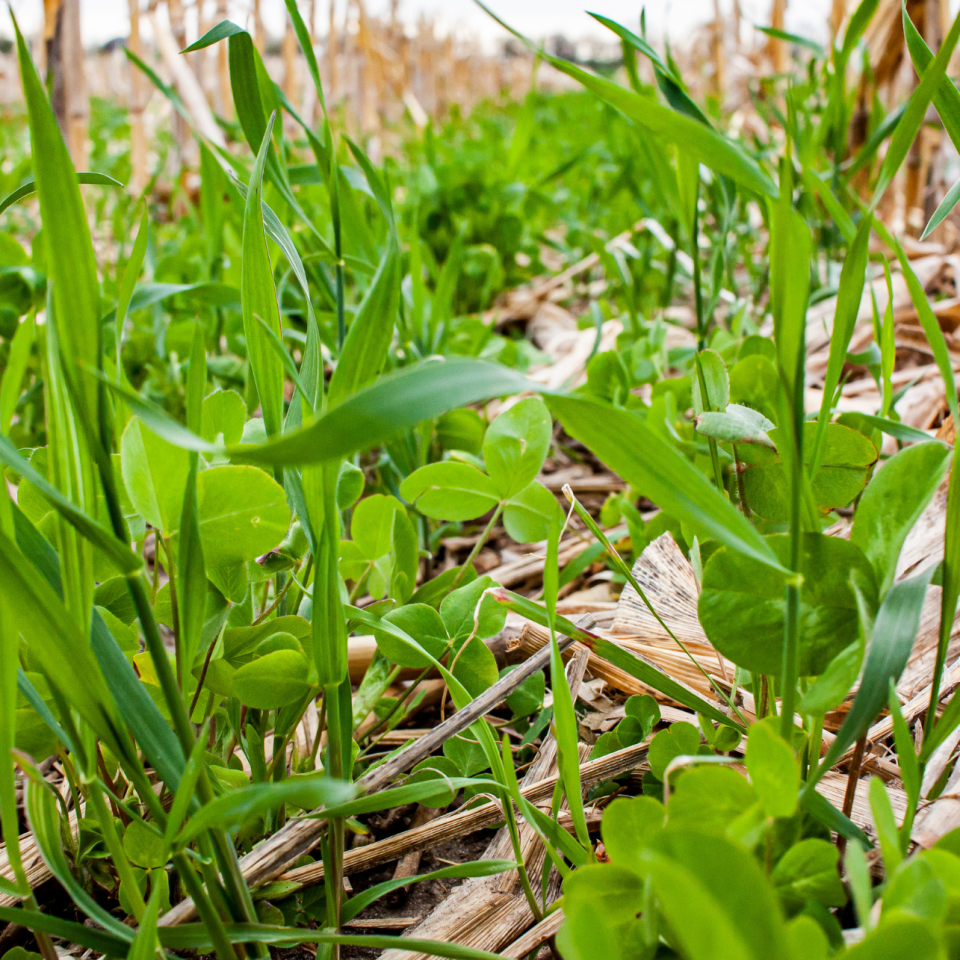
By Sharon Vogels, Sylvite
As wheat harvest progresses, now is a common time for establishing cover crops. There are many benefits that cover crops can offer. They can provide supplemental feed for livestock. A legume species can provide additional nitrogen for next year’s crop. Cover crop root systems can also break apart shallow compaction, minimize soil erosion, scavenge soil nutrients, increase the soil’s water holding capacity and infiltration, and build organic matter by supporting soil biology.
The first step is to decide what the goal is for the cover crop. Are you trying to minimize erosion? Do you need the cover crop to overwinter? Are you looking for a nitrogen source? Do you need the cover crop to build soil structure, or suppress weeds? Take the time to answer WHY you’re putting in a cover crop to help determine WHAT you will plant.
Once you have determined your cover crop goal, then you can narrow in on the species that will best fit on your farm. Oats are a very common cover crop as they are less expensive and simpler to manage than other species.
Consider how you will establish (broadcast or drill) the cover crop, and then most importantly, how you will terminate the cover crop. At exit plan is a must, even for species that should winterkill. You want the benefit of the cover crop, but you cannot afford it to interfere with the success of the subsequent crop.
Plan for any management required, ie fertilizer or crop protection. For those making livestock feed, a nitrogen source (commercial fertilizer or manure) is a must for maximizing tonnage. Rust is extremely common on cover crop oats, so fungicide should also be part of the plan for getting good biomass production.
A great resource for anyone using cover crops in their rotation is the Midwest Cover Crops Council https://covercroptool.midwestcovercrops.org/.
At this website, you will find ample information on species selection, establishment, and termination.
If you’re interested in cover crop options, have a conversation with your Sylvite sales rep to find the best fit for your farm.